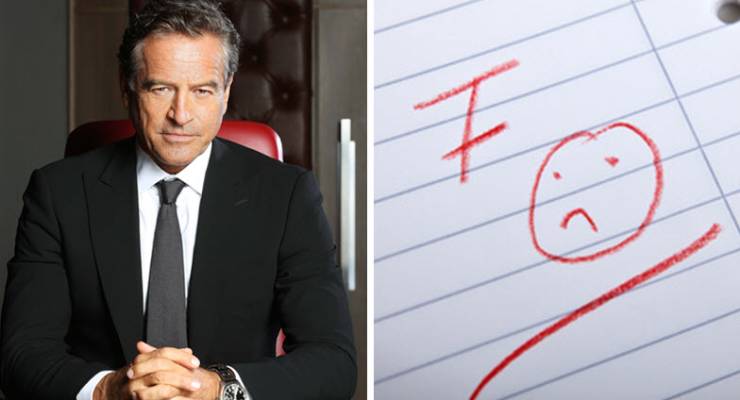
Mark Bouris, of Wizard Home Loans and Celebrity Apprentice Australia fame, has become the latest captain of industry to give Australia’s universities a damn good thrashing. In his latest Daily Telegraph piece, “How uni is failing our students”, he describes the Australian tertiary education system as a “huge industry that’s fleecing people out of their cash”. It is “broken”, Bouris claims, “and we need to tear it down and start again”.
Strong words. Strong words that ought to be backed by evidence.
One of Bouris’ more colourful metaphors compares a university degree to paying $40,000 for a car, waiting four years for it to be delivered and then finding out you’ve only got a 50-50 chance that it will start. In case readers suspected he was embellishing for effect, he doubles down on the analogy stating “that’s no exaggeration”. So is it? Some fact-checking is in order.
Bouris’ figures come from the 2018 Graduate Outcomes Survey (GOS), freely available from the government’s QILT (quality indicators for learning and teaching) website. The website itself cautions interpreting the results, which are based on surveys not completed by all graduates. Nevertheless, let’s take the data at face value.
Bouris states that the number of graduates who were in full-time employment four months after finishing their degrees fell to 72.9% last year from a high of 85.2% in 2008. This is true to a point, but the data is taken from a selective sample. The figure of 72.9% is for undergraduate full-time employment four months out, combining university (73.3%) and non-university (61.3%) providers. It rose from 71.8% last year, continuing a rising trend since 2014. The total employment figure is also up from last year at 87%. At the same time, postgraduate student employment is up slightly at 86.9% full time, and 92.9% total employment.
Bouris goes on to observe that for some degrees the full-time employment rate is as low as 52.2%. That means, he concludes, “that at best 30% of people who finish a degree aren’t working in that field months later. And, at worst, it’s almost half the graduates.” This is factually incorrect. Pharmacy, for example, is reported to have a full-time employment rate of 97.2%. Bouris appears to have adopted the average as the “best case” and a single discipline (creative arts) as the worst.
Finally, it is worth noting that these surveys are taken only four months out. To give a fuller picture, the government provides longitudinal figures. This data shows that the full-time employment for the 2015 undergraduate cohort rose from 67.1% to 89.2% withYesin three years (and four months) of graduation. Overall employment rose to 92.4%. Even Bouris’ cherry-picked discipline, creative arts, rose to 80.4% and 89.3% respectively.
Bouris’ article represents a broader trend of business figures and organisations weighing in on higher education. The most notable has been the Business Council of Australia’s reform plan, “Future Proof”, launched by CEO Jennifer Westacott at the National Press Club in October 2017. That report, at the very least, presented some fresh, if controversial, thinking and was given a needed update in August 2018 after considerable stakeholder consultation.
While all ideas are welcome, contributors must be accountable to the same standards of evidence as the heavily regulated higher education system itself. To not do so undermines confidence in the nation’s universities.
What do you make of Mark Bouris’ take on Australia’s university system? Write to boss@crikey.com.au.
Cara MacNish is a former chair of the academic board at the University of Western Australia.







The end-game for the corporate blood-suckers is that the taxpayer picks up the tab for all training, including on-the-job training. Every cent of expenditure they can take off their books and foist upon the public is one more cent they can add to their bonuses.
Our country is ruled and controlled by people of infinite greed. We desperately need an alternative to capitalism.
No disputing that.
Some universities still teach literature and philosophy. We need to put an end to that.
Surely some smart teki could weaponi$e that stuff to turn a quid?
Employment outcomes are multi-factorial. Look at the supply of jobs in relation to supply of graduates, whether a course leads to professional registration or not, whether further study is required or expected and so on. And then there are valued outcomes apart from a job.
‘he describes the Australian tertiary education system as a “huge industry that’s fleecing people out of their cash”.’ sounds a touch ironic coming from a man who mad his money in financial services.
One part of it is, the private TAFE sector. You know the ones run by business.
LOL Mark Bouris is one of those classic “industry figures” who doesn’t need to Photoshop white shoes into his biopic. (They’re an essential part of his uniform.)